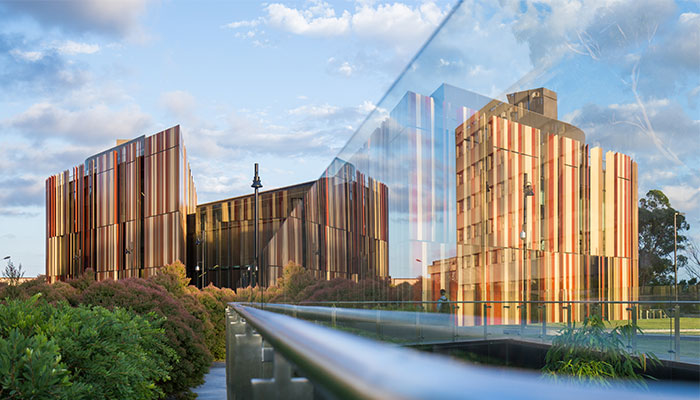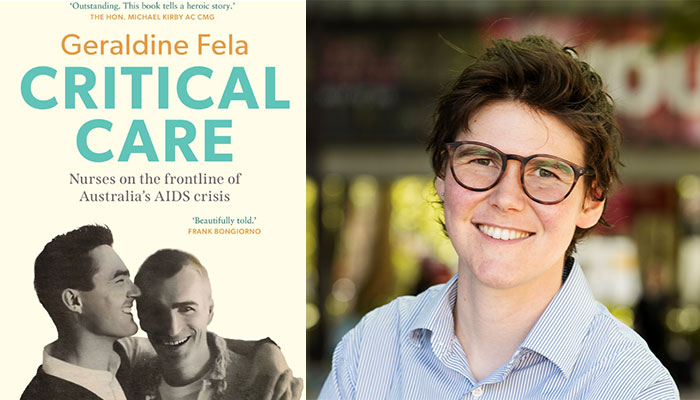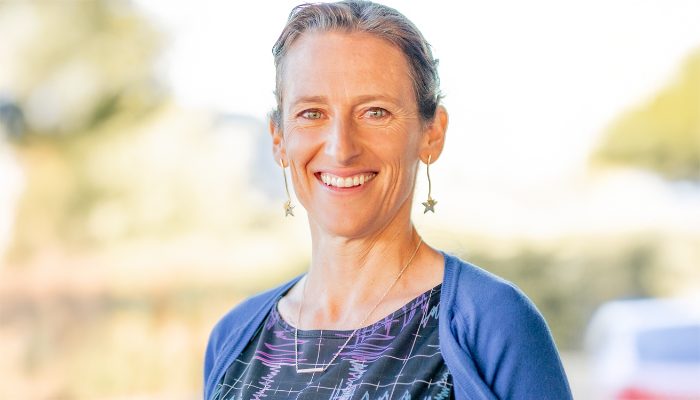Update: see the latest Vegesafe news here.
Urban gardens and home vegetable patches are increasingly popular in Sydney, yet few people are aware that a simple soil check might reduce significantly any health risks associated with eating home-grown produce.
This is particularly important for urban veggie patch growers – especially at older houses or near main roads, where environmental lead may be present from old leaded paint, traffic fumes or other sources, in high concentrations in soil and dust.
As part of a new ‘VegeSafe’ initiative, to keep veggies safe, a team of Environmental and Earth scientists from Macquarie University’s Faculty of Science will be offering free soil metal testing at the University’s annual Open Day on September 14, giving community members new insight into safe urban gardening options.
"Although lead was removed from petrol in 2002, and in other household substances like paint during the 1990’s, our research shows that Sydney’s household soil still has a lead legacy – accumulated lead in soil and dust,“ says Associate Professor Damian Gore.
This is especially important information for parents and keen urban gardeners,” he says. “As more inner-‐city and suburban families start sustainable vegetable gardens, it’s crucial that they know what’s in the soil before eating their produce, or exposing their children to soils.”
Team leader Professor Mark Taylor is an expert in lead contamination, primarily in high-‐risk mining areas such as Mount Isa and Port Pirie, but also increasingly in what he is seeing as “an inner-‐city backyard epidemic”.
Taylor says “High soil lead has been shown to correlate with high blood lead exposure in children – through them being more likely to be exposed to that dirt through their play, and getting dirt in their mouths – an exposure which is then associated with developmental and neurological risks.”
To reduce Sydney's potential exposure risks, the team has offered to analyse visitor's soil using state-‐of-‐the-‐art Olympus X-‐ray instruments as part of the Open Day activities on Saturday September 14th.
Open Day is the biggest event on Macquarie University’s calendar with over 14,000 visitors coming to the North Ryde campus. It gives the local community a unique opportunity to visit Macquarie University, meet with its experts and students and make new connections, from the VegeSafe program to children’s science activities with slime and goo, and arboretum tours of the beautiful bushland environment.
To participate in the VegeSafe program on Open Day, community members are advised to follow the instructions on the VegeSafe website.
Quick facts:
Your garden soil in Sydney might be lead-‐contaminated if it is now or was once surrounding or nearby;
• A pre-1997 painted residential building or pre-2010 painted industrial building, and the paint has deteriorated or been dry-scraped, heat-gunned or dry-sanded and allowed to contaminate the yard;
• Older inner city homes or those near main busy roads - pre-2002 leaded petrol vehicle emissions emitted lead particulates to the atmosphere that accumulate in dust, soil and ceilings;
• Lead flashing or lead acid batteries, manufacturing or recycling plants, or a waste dump/landfill.
The team will also measure several other toxic elements including copper, zinc and arsenic, which may have been used in fungicides and pesticides, and will alert homeowners if found in unhealthy concentrations.
Urban gardens and home vegetable patches are increasingly popular in Sydney, yet few people are aware that a simple soil check might reduce significantly any health risks associated with eating home-grown produce.
This is particularly important for urban veggie patch growers – especially at older houses or near main roads, where environmental lead may be present from old leaded paint, traffic fumes or other sources, in high concentrations in soil and dust.
As part of a new ‘VegeSafe’ initiative, to keep veggies safe, a team of Environmental and Earth scientists from Macquarie University’s Faculty of Science will be offering free soil metal testing at the University’s annual Open Day on September 14, giving community members new insight into safe urban gardening options.
"Although lead was removed from petrol in 2002, and in other household substances like paint during the 1990’s, our research shows that Sydney’s household soil still has a lead legacy – accumulated lead in soil and dust,“ says Associate Professor Damian Gore.
This is especially important information for parents and keen urban gardeners,” he says. “As more inner-‐city and suburban families start sustainable vegetable gardens, it’s crucial that they know what’s in the soil before eating their produce, or exposing their children to soils.”
Team leader Professor Mark Taylor is an expert in lead contamination, primarily in high-‐risk mining areas such as Mount Isa and Port Pirie, but also increasingly in what he is seeing as “an inner-‐city backyard epidemic”.
Taylor says “High soil lead has been shown to correlate with high blood lead exposure in children – through them being more likely to be exposed to that dirt through their play, and getting dirt in their mouths – an exposure which is then associated with developmental and neurological risks.”
To reduce Sydney's potential exposure risks, the team has offered to analyse visitor's soil using state-‐of-‐the-‐art Olympus X-‐ray instruments as part of the Open Day activities on Saturday September 14th.
Open Day is the biggest event on Macquarie University’s calendar with over 14,000 visitors coming to the North Ryde campus. It gives the local community a unique opportunity to visit Macquarie University, meet with its experts and students and make new connections, from the VegeSafe program to children’s science activities with slime and goo, and arboretum tours of the beautiful bushland environment.
To participate in the VegeSafe program on Open Day, community members are advised to follow the instructions on the VegeSafe website.
Quick facts:
Your garden soil in Sydney might be lead-‐contaminated if it is now or was once surrounding or nearby;
• A pre-1997 painted residential building or pre-2010 painted industrial building, and the paint has deteriorated or been dry-scraped, heat-gunned or dry-sanded and allowed to contaminate the yard;
• Older inner city homes or those near main busy roads - pre-2002 leaded petrol vehicle emissions emitted lead particulates to the atmosphere that accumulate in dust, soil and ceilings;
• Lead flashing or lead acid batteries, manufacturing or recycling plants, or a waste dump/landfill.
The team will also measure several other toxic elements including copper, zinc and arsenic, which may have been used in fungicides and pesticides, and will alert homeowners if found in unhealthy concentrations.



